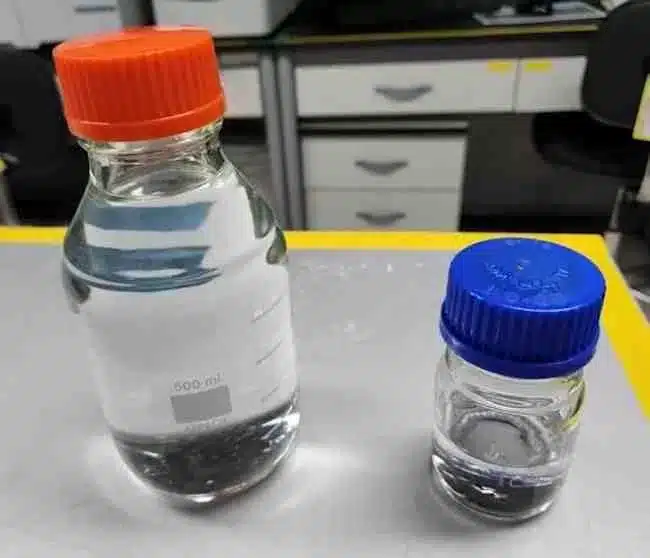The new company, Morisora Bio Refinery, will produce tens of thousands of kilolitres of green energy from 2030.
Japan’s top carriers, including All Nippon Airways (ANA) and Japan Airlines, have expanded their SAF purchases as they both deliveer on their commitment to use SAF to meet 10% of their fuel needs by 2030.
Two of Japan’s largest forest companies – Sumitomo and Nippon Paper – will scale up the production of sustainable aviation fuels (SAF) from wood chips, entering into a joint venture with green energy company, the Green Earth Institute, to supply Japan with a tens of thousands of kilolitres of green energy from 2030.
The new company, Morisora Bio Refinery LLC, to be formalised next month, was announced by Toru Nozawa, president of Nippon, Shingo Ueno, President and CEO of the Sumitomo Corporation, and Tomohito Ihara, CEO of the Green Earth Institute and see the three companies join to produce and sale of bioethanol and biochemicals at scale.
The joint venture will construct a semi-commercial plant at Nippon Paper’s Iwanuma Mill in Miyagi Prefecture, Japan. The bioethanol produced by the project will be a low-carbon, non-food biomass-based ethanol (E2G) made from wood chips.
It comes two years after the companies signed an MOU focused on “Turning the Power of Forests into the Power of Flight” and will now see a new plant constructed at Nippon’s Iwanuma Mill. Tapping into Sumitomo’s steady supply of raw materials, it will use the Green Earth Institute’s low-carbon, cost-efficient bioethanol production process – with more than 1,000 kilolitres of bioethanol produced at the new mill from 2027.
According to Sumitomo, bioethanol will use wood chips sourced from the Tohoku region: “By using locally sourced wood chips, the project will reduce CO2 during transportation. (Furthermore), the manufacturing process will use carbon-neutral energy derived from lignin, a component of wood biomass, reducing fossil-derived CO2 emissions,” – with gasoline blending, fuel cells, cosmetics, and chemical feedstock amongst a range of other products that the new company can produce.
[
]Last year, a research team led by senior researcher Ha Jeong-Myeong and researcher Yu Chun-jae from KIST’s Clean Energy Research Center successfully created Sustainable Aviation Fuel (SAF – suitable for aviation airlines) using forest and grass-based biomass. (Photo Credit: KIST)
The announcement comes months after South Korean scientists revealed the first examples of forest-based SAFs suitable for long-range aviation. Led by Ha Jeong-Myeong and Yu Chun-Jae, both from the Korea Institute of Science and Technology (KIST) Clean Energy Research Center, the new SAFs have properties similar to petroleum-based jet fuel – and can run for up to 100 hours, even in the presence of impurities.
“SAF can reduce carbon emissions by up to 80% compared to conventional petroleum-based aviation fuel,” Ha said. “This technology expands the resource base for aviation fuel production by enabling the use of non-food resources like wood and grass, and thus moving beyond the current reliance on editable materials.”
Source: Japan's Forest Giants Join Forces to Produce Rocket Fuel from Wood Chips | Wood Central


